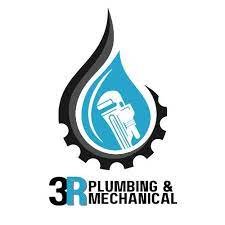5 Plumbing Problems Common in Old Homes and How to Fix Them
Old homes in Massachusetts hold a special charm with their historic architecture and classic design. However, with age often comes plumbing issues that modern homeowners might not expect. From corroded pipes to outdated fixtures, older homes are prone to plumbing problems that can lead to costly repairs if not addressed.
If you own or are considering purchasing an older home, it’s essential to understand the unique plumbing challenges that may arise and how to fix them. In this guide, we’ll explore five common plumbing problems in old homes and the solutions to ensure your plumbing system works efficiently and reliably.
1. Corroded or Outdated Pipes
The Problem:
Older homes were often built using materials like galvanized steel, cast iron, or even lead pipes. While these materials were common in their day, they are prone to corrosion, rust, and leaks over time. Galvanized pipes, in particular, are known for restricting water flow as they corrode internally. Lead pipes can also pose serious health risks, as lead can leach into the water supply.
How to Fix It:
Pipe Inspection: Start by having a professional plumber perform a thorough inspection of your plumbing system to identify problem areas.
Repiping: Replace corroded or lead pipes with modern materials like copper or PEX piping. These materials are durable, resistant to corrosion, and safe for potable water.
Partial Replacement: If a full repipe isn’t immediately feasible, focus on replacing the most problematic sections first to prevent major leaks or health hazards.
Tip: Upgrading your pipes not only improves water quality but also increases water pressure and the longevity of your plumbing system.
2. Low Water Pressure
The Problem:
Low water pressure is a common complaint in older homes and is often caused by corroded pipes, sediment buildup, or outdated plumbing fixtures. Over time, minerals and debris can accumulate in pipes, restricting the flow of water to your taps and showers.
How to Fix It:
Clean or Replace Aerators: Mineral buildup can clog faucet aerators. Remove and clean them to improve water flow.
Pipe Replacement: If corrosion is the issue, replacing sections of old pipes can restore proper water pressure.
Install a Pressure-Boosting System: For persistent low pressure, consider installing a water pressure booster to increase flow throughout your home.
Tip: Have your water supply tested for mineral content, as hard water can exacerbate sediment buildup in pipes.
3. Leaky Fixtures and Connections
The Problem:
Older homes often feature outdated fixtures, washers, and connections that have worn out over time. Dripping faucets, leaky pipes under sinks, or poorly sealed joints can waste water and cause damage to cabinets, floors, and walls.
How to Fix It:
Replace Fixtures: Upgrade to modern, water-efficient fixtures to eliminate leaks and save on water bills.
Tighten Connections: Ensure all pipe fittings and connections are securely sealed to prevent leaks.
Address Underlying Issues: Sometimes, leaks may be a sign of larger problems, such as excessive water pressure or deteriorating pipes.
Tip: Small leaks can quickly escalate into major repairs. Regular maintenance and inspections are key to catching problems early.
4. Poor Drainage and Clogged Pipes
The Problem:
In older homes, drainage systems may not function as efficiently due to narrow pipes, grease buildup, or accumulated debris. Tree roots can also invade old sewer lines, causing clogs and backups.
How to Fix It:
Professional Drain Cleaning: Hire a plumber to perform hydro-jetting or drain snaking to clear stubborn blockages.
Inspect Sewer Lines: Use video camera inspections to check for tree roots or cracks in your sewer lines.
Upgrade Pipes: If recurring drainage issues persist, it may be time to replace older pipes with modern materials that allow for smoother water flow.
Tip: Avoid pouring grease, food scraps, or non-flushable items down drains to prevent clogs.
5. Failing Water Heaters
The Problem:
Older homes may have water heaters that are past their prime, leading to inconsistent hot water, strange noises, or leaks. Traditional water heaters typically last 8-12 years, so if yours is older, it may be time for a replacement.
How to Fix It:
Inspect the Water Heater: Have a plumber check for sediment buildup, leaks, or worn-out components.
Flush the Tank: Sediment buildup can be cleared with a professional flush to improve efficiency.
Upgrade to a Tankless Water Heater: For better efficiency and endless hot water, consider switching to a tankless water heater. These systems are more energy-efficient and compact, making them ideal for older homes with limited space.
Tip: Upgrading your water heater can lower energy bills and improve overall comfort.
Trust 3R Plumbing & Mechanical for Your Old Home’s Plumbing Needs
Owning an older home in Massachusetts doesn’t mean you have to live with constant plumbing headaches. At 3R Plumbing & Mechanical, we specialize in identifying and solving the unique plumbing challenges that come with older properties. Whether it’s repiping, fixture replacements, or water heater upgrades, our expert team is ready to help.
Why Choose Us?
Experienced Professionals: We have years of experience working with older homes.
Custom Solutions: Tailored solutions that respect your home’s integrity while modernizing its plumbing.
Reliable Service: Fast, efficient, and dependable repairs to keep your home running smoothly.
If your old home’s plumbing system is showing signs of wear, give us a call at 781-312-0316 or visit our website to schedule your inspection today!
